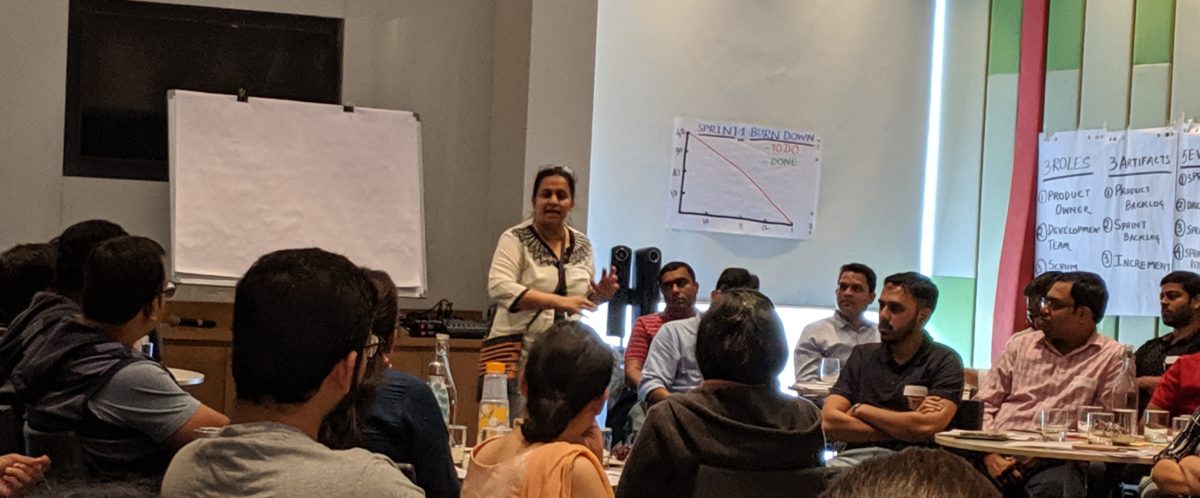Scrum is a framework for solving complex adaptive problems. Scrum does not describe any tools, techniques and best-practices. Most people misunderstand Scrum and make assumptions on Scrum. The set of articles in this section are intended to bust some of these myths around Scrum.
Scrum is a framework to handle problems which are complex in nature. Complex Adaptive Problems are also called Empirical problems. That means for certain problems, knowledge can only come from experience and what you see. so the decisions are based on what you see in front of you. Scrum is an implementation of this principle.
One must understand that Scrum is purposefully incomplete. The tools, techniques and practices are not part of the core Scrum. The reason why Scrum is purposefully incomplete is because Scrum is generic and can be applied to any industry. The tools and techniques are specific to industries and are described in the industry specific methods.
Please refer to the following links to know more about Scrum Myths
- Is Daily Scrum a status meeting?
- Is Sprint Backlog a commitment?
- Is Scrum Master a renamed PM role?
- Important to decide DOD at start?
- Myths around Sprint Lengths
- Myths around Sprint Planning
- Is Sprint Review a Sign-off Meeting?
- Should we create Multiple Backlogs?
- Scrum is useful for only Small Projects?
This article is re-published on WORLD OF AGILE website –https://worldofagile.com/blog/busting-myths-around-scrum/
